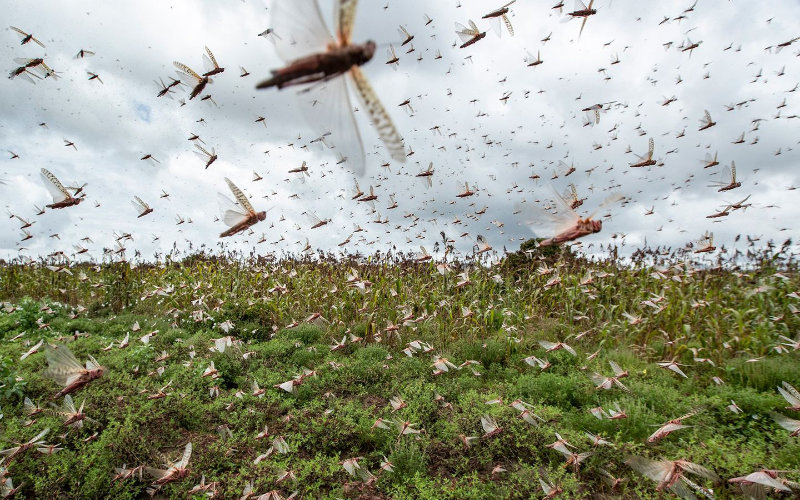Climate Change Could Intensify Locust Invasions in Morocco, Study Warns

Climate change could trigger more significant and severe locust invasions in Morocco. This is revealed by a study conducted by international researchers.
Locust invasions will be "increasingly difficult to prevent and control in a warming climate." These are the conclusions of a study published Wednesday in Science Advances, and conducted by Xiaogang He, assistant professor at the National University of Singapore, and other researchers. They assessed the risk of locust infestations in Africa and the Middle East and the link with climate change. After analyzing locust invasion incidents from 1985 to 2020 using the Locust Hub data tool of the United Nations Food and Agriculture Organization (FAO), the scientists created and used a data-driven framework to examine locust patterns, to discover what can trigger long-distance invasions.
This study allowed the researchers to find that 10 countries, including Kenya, Morocco, Niger, Yemen and Pakistan, have experienced the majority of locust crises among 48 affected countries, but also to discover a close link between the magnitude of locust invasions and weather and land conditions such as air temperature, precipitation, soil moisture and wind. The study also reveals that locusts are more likely to infest arid areas that receive sudden and extreme rainfall, and that the number of insects during an infestation is strongly influenced by weather conditions.
The United Nations Food and Agriculture Organization (FAO) describes the locust as the "most destructive migratory pest in the world." According to the World Bank, a locust invasion that occurred in West Africa between 2003 and 2005 affected crops. The damage is estimated at $2.5 billion. More than $450 million had been mobilized to respond to this invasion.
Related Articles
-

Airport Sting Uncovers Algerian Passport Fraud Scheme
15 September 2025
-

Morocco’s Naval Ambitions Surge: French Submarines on the Horizon
15 September 2025
-

Moroccan Sues Highway Company After Stray Dog Crash Trauma
15 September 2025
-

Stranded Tourist’s Moroccan Ordeal Ends in Cross-Border Triumph
15 September 2025
-

Morocco Surges to Third in EU Residency Race, Outpacing Global Rivals
15 September 2025